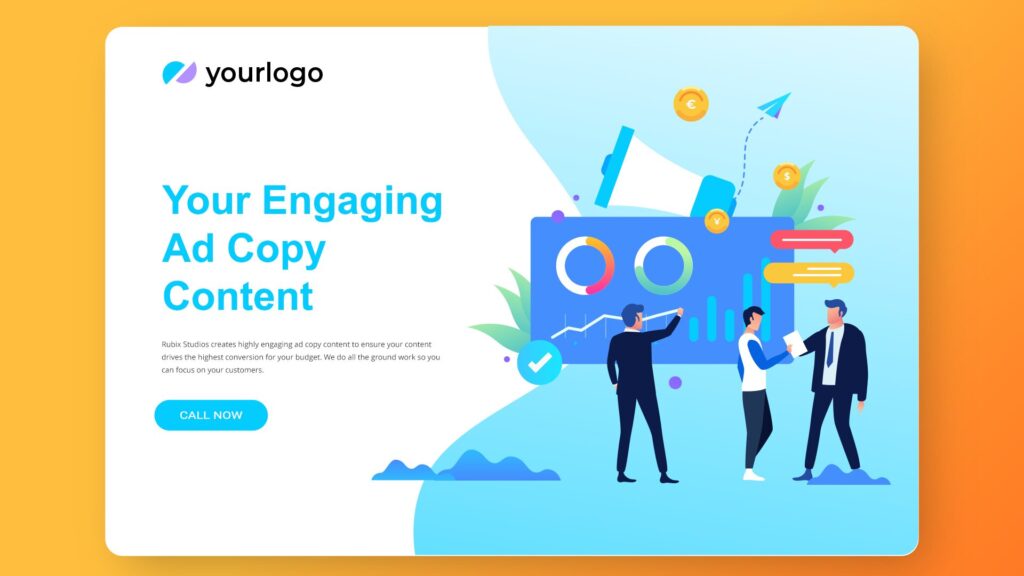How to calculate a budget for Google Ads
One of the most commonly asked questions by businesses as well as marketers is how much should I be spending on pay-per-click (PPC) advertising?
In the ever-changing landscape of online marketing, Google Ads has emerged as a powerful tool for businesses to promote their products and services to a vast audience. Marketers and advertisers are often asked by questions such as “How much should I spend on Google Ads?” and “What should my daily ad budget be?”
Setting the right budget is a vital part of ensuring a successful Google Ads or Bing Ads campaign. It has a direct impact on the effectiveness, visibility and reach of your ads.
Follow our comprehensive guide to assist your business in achieving its advertising objectives. This guide will explain and show you how to calculate a budget for Google Ads. From defining your campaign goals to analysing data and refining your strategy, we will cover all the essential aspects to ensure your advertising investment delivers optimum results.
How Does Google Ads Work?
To properly set your Google Ads budgets, it is important to have a clear understanding of how Google Ads work as a marketing tool and how it operates.
Google Ads operates much like an auction. When a user searches on Google, an ad auction begins. Relevant ads are entered into the auction based on matching keywords. If a keyword is popular, more advertisers will bid on it, leading to higher costs. The higher the spend determines the position of the ads displayed this is also known as the Ad Rank.
The Ad Rank plays a significant role in determining the cost-per-click (CPC) and the placement of ads. Ad Rank is influenced by the quality score (QS) and the maximum bid for the keyword. Quality scores depend on factors like the keyword’s relevance to the search term, the landing page and the click-through rate (CTR).

Google Ads Rank is the position in which your ad is displayed on Google’s searches.
Google Ads Rank is determined by Max Cost Per Click (CPC) x Ad Quality Score (QS).
Having a high-quality score can effectively drive your ads higher whilst reducing the overall cost of running your ads.
Your advertising Quality Score is determined by several factors including:
- Landing page experience
- Expected click-through-ratio (CTR)
- Ad relevance
Landing page experience
Landing page experience is a critical factor in Google Ads that measures the quality and relevance of the webpage that users are directed to after clicking on your ad. It focuses on the user’s experience and how well the landing page content meets their needs and expectations.
A positive landing page experience is essential because it enhances user satisfaction and encourages them to take the desired action, such as making a purchase, filling out a form or engaging with your website. Google evaluates landing page experience to ensure that users have a positive and relevant experience after clicking on an ad.
Several factors contribute to the landing page experience, including:
Relevance
The landing page content should closely match the content and intent of the ad. If the ad promises certain products, services or information, the landing page should deliver on those promises.
Originality
The content on the landing page should be original, unique and valuable to users. Avoid duplicating content from other sources, including content on your website. To avoid issues of originality, your website content should have effective copywriting, which will also directly influence your search engine optimisation (SEO).
Transparency
Communicate your business offerings and avoid misleading or deceptive practices that might confuse users. The website and landing page should receive careful consideration for UX/UI and a minimalistic approach to web design should also be taken into account.
Navigation
Ensure that users can easily navigate through the landing page and find what they are looking for without encountering obstacles or irrelevant distractions.
Mobile-friendliness
With the increasing number of users accessing the internet on mobile devices, it’s essential to have a mobile-friendly landing page (landing page design) that provides a seamless experience on smartphones and tablets.
Page load speed
A fast-loading landing page (website optimisation) is crucial to prevent users from getting frustrated and abandoning the page.
Content relevance
The content on the landing page should align with the targeted keywords and ad copy. It should also provide valuable information and a clear call to action (CTA).
Improving your landing page experience can optimise your Google Ads performance, raise your Quality Score (QS) and potentially reduce your cost-per-click (CPC). A favourable landing page experience leads to satisfied users and better ad campaign outcomes, which ultimately benefits both advertisers and Google’s users.
This effectively means, your ads and ad budget are directly related to your website from the design to content as well as the coding behind it.

What Are Your Objectives For Your Google Ads Campaigns?
The marketing campaign and settings that you choose are based on your organisational goals. To help you achieve these goals, here are some common approaches that most companies use:
Generate Sales (High Budget)
The primary goal of any company is to generate revenue and Pay-Per-Click (PPC) ads offer a lucrative opportunity to reach high-intent audiences. To boost sales, it’s crucial to bid on relevant keywords, even if they come at a higher price. View it as a valuable investment that can yield long-term profits.
If your objective is to generate sales, your advertising campaign budget is expected to be much higher as your target keywords are more focused. These keywords are higher within the auction as they are more widely targeted by both marketers and competitors. They are seen as words that have a high opportunity for conversions.
Increase Traffic (Mid Budget)
Small businesses often strive to increase their website traffic to raise brand awareness among potential customers, making it a great way to kickstart their business.
If your focus is on generating traffic rather than sales, it’s best to keep your budget for PPC campaigns low. You can also take a cautious approach by bidding on generic keywords and ad extensions. While this may not result in immediate revenue, it can generate high levels of traffic, which could lead to future sales.
By implementing traffic-focused campaigns, you can effectively distribute your Google Ads campaign budget, reaching a larger audience at a lower cost-per-click. This can ultimately lead to a reduction in budget while still increasing your visibility.
Create Brand Awareness (Low Budget)
It is a well-known fact that about 65% of individuals are visual learners. Hence, advertisements serve as a valuable marketing tool that leaves a lasting impression. By promoting your brand name, ads encourage visitors to watch and remember your offerings.
Increasing brand awareness can have a significant impact on a company’s website performance, improving associations, trust and engagement with the brand.
Brand awareness ads aim to increase the visibility of a brand by using a high volume of repeated visuals. They are not specifically targeted to a particular audience and are shown to a broader viewership. The cost of these campaigns is significantly lower than both traffic and sales conversion campaigns.
The purpose of these campaigns is to expand your brand’s reach and increase visibility, targeting both potential and future customers.
Lead Generation (High Budget)
Lead generation Google Ads campaigns are advertising campaigns specifically designed to capture potential customers’ information and generate leads for a business. Unlike traditional Google Ads campaigns that focus on driving website traffic or sales, lead generation campaigns prioritise obtaining contact details, such as names, email addresses, phone numbers or other relevant information, from interested individuals.
It is crucial to align your landing page with your targeted keyword and ensure that the call-to-action (CTA) captures the attention of your visitors and encourages them to enter the sales funnel. A well-thought-out sales strategy is essential in retaining potential customers and boosting sales.
Maintaining your quality score is crucial if you want Google to reward your brand with a discounted average cost per click and higher rankings in Google Search results. You must ensure that your target keywords, Google Ads campaign and landing page are in perfect alignment.
How Do You Calculate Google Ads Budget?
Effective budgeting is essential for the smooth running of any organisation. This involves creating a comprehensive plan to manage expenses and make strategic investments that yield high returns. It is imperative to maintain control over costs and maximise profitability through well-informed financial decisions.
Estimate the initial budget

Figuring out your budget for Google Ads requires extensive keyword research and a clear understanding of your company’s goals. It involves developing a marketing strategy and selecting appropriate KPIs (key performance indicators).
These factors must be carefully considered to establish a starting budget.
Google Ads and your current marketing strategy
If your business already has a robust online presence and established methods for generating leads, then you may not have to worry about acquiring new leads. However, if you are new to the digital landscape, it might be necessary to explore different marketing channels like Facebook Ads, SEO optimisation, public relations and referrals to attract potential customers.
Before adding Google Ads to your marketing plan, it is essential to conduct a thorough analysis of your current marketing channels. Ask yourself the following questions:
- Are your current marketing efforts generating the desired results and are they attracting the right audience?
- Do you have a clear understanding of your target market and how effectively are you reaching them through your current channels?
- Are your existing marketing channels sustainable and scalable for long-term growth?
- How does the cost of acquiring leads through your current channels compare to the potential costs of using Google Ads?
- Will Google Ads complement your existing efforts or potentially cannibalise your other marketing channels?
- Can Google Ads offer unique advantages, such as targeting a specific audience segment or boosting your brand visibility?
Watch your competitors
Monitoring your competitors is a crucial aspect of digital marketing, especially in a highly competitive and rapidly evolving market. While focusing on your own business is important, keeping a close eye on your rivals allows you to gain valuable insights and stay ahead of the competition.
Tools like SEMrush and Google Keyword Planner provide valuable data on your competitors’ Google Ads budget and the keywords they are bidding on. By analysing this information, you can identify areas where you can improve your marketing strategies and discover potentially cheaper yet effective keywords to bid on.
Observing your competitors’ actions helps you understand their strengths and weaknesses, allowing you to adapt your marketing efforts for better results. You can learn from their successes and mistakes, fine-tune your ad copy and targeting and identify untapped opportunities in the market.
Check the cost of keywords
Formulating your initial budget involves a straightforward approach: assess the expenses tied to the keywords you intend to bid on, thereby charting a course for your company’s financial strategy. This preliminary stage entails incorporating your landing pages into the Google Ads Planner. Doing so will yield a compilation of pertinent keywords, complete with their popularity and levels of competition.
Furthermore, consider the inclusion of web pages linked to your business’s products and services. This practice can unearth underappreciated keywords that present bidding opportunities. Due to their lower competition, these search terms come with a more economical price tag while still possessing the potential to draw substantial traffic.
It’s worth noting that keywords branded with commercial intent generally yield higher click-through rates compared to their non-branded counterparts. For instance, while the term “white dress” is rather generic and appeals to a broad audience, the phrase “H&M white sundress” directs attention towards the distinct offering of the brand. Additionally, long-tail keywords extend your reach and correlate with a heightened conversion rate, which sees an increase of 36%.
Prioritise KPIs (key performance indicators)
The final process of estimating your advertising expenses involves a thorough examination of the key performance indicators (KPIs) that hold significance for your business. Presented below are a set of standard KPI metrics:
- Quality score
- Average position
- Click-through rates (CTR)
- Conversion rate
- Impressions
- Cost per conversion
You have the opportunity to harness the power of cost per acquisition (CPA), determine conversion rates and strategically utilise existing CPA across different channels. It’s essential to select and prioritise approaches that align with your company’s goals and objectives.
Should you find that altering the target location does not yield discernible improvements in return on investment (ROI), it may be advisable to allocate less investment towards achieving a higher average position.
Likewise, if your company’s primary objective revolves around boosting sales, it’s prudent to direct your attention towards optimising the cost per conversion. As you accumulate sufficient data for more precise budget planning, you retain the flexibility to adjust the settings within your Google AdWords account as needed.
Divide the budget among various search campaigns
Your search campaigns will be categorised into research, competitor, branded, high intent and top performers, with each category possessing a dynamic nature.
On a technical level, it might seem optimal to allocate a significant portion of your budget to branded keywords, given your desire to establish a dominant brand presence in the market. However, Google indicates that acquiring these keywords could demand a hefty price of at least $97 per click.
Unless you’re willing to make an extravagant investment for advertising, it’s wiser to channel your focus towards high-intent, research-oriented and top-performing keywords. These keywords are known to yield a substantial conversion rate. It’s important to recognise that these dynamics fluctuate based on varying companies and niches. Regular research and budget adjustments are advisable, preferably every week, to ensure optimal Return on Investment (ROI).
Display and remarketing tools
In addition to search advertising, Google AdWords offers a plethora of alternative online advertising avenues, such as display ads, remarketing campaigns, shopping campaigns and more. These diverse marketing tools possess the capability to significantly impact your budget, contingent upon your objectives and Pay-Per-Click (PPC) strategy.
Display
The Google Display Network (GDN), while not primarily geared towards high-intent marketing, proves advantageous for building brand awareness and showcasing your products or services. For small businesses, utilising display advertising can serve as a supplementary approach, allowing them to enter the market with eye-catching logos, banners, visuals and more.
Remarketing
Employing remarketing is a potent strategy to transform recurring visitors into customers. While certain account managers contend that remarketing essentially involves investing funds to draw the same individuals back to your site, it still holds an advantage over achieving no conversions at all.
To ascertain the budget for your remarketing endeavours, you can compute it based on the cumulative conversions originating from returning visitors.
Although these marketing tactics might appear discretionary, both contribute significantly to optimising your budget by channelling increased funds towards promising prospects.
Use Google Ads budget calculator
The Google Ads Budget calculator presents a user-friendly and engaging interface for fine-tuning your budget and evaluating its impact on your Return on Investment (ROI). If your company hasn’t enlisted an accountant yet, entrust the task to Google and let it handle the job.

How To Select Relevant Keywords For Google Ads?
The choice of keywords holds the power to shape the outcome of your Google Ads campaign. It stands as a pivotal element in influencing your budget. Although opting for a commonly searched generic keyword might seem like a viable approach, it necessitates a substantial budget allocation to secure a top-ranking position in the Search Engine Results Pages (SERPs).
The concept of ad quality score introduces the notion of ad relevance. Utilising pertinent keywords not only elevates your brand’s standing but also amplifies your presence among interested clientele, thereby augmenting Return on Investment (ROI).
Researching high search keywords
Enterprises can acquire insights into search volume patterns by utilising tools such as Google Keyword Planner and Google Search Console. Employing broader keywords yields a higher click-through rate, encompassing potentially overlooked targeted traffic. Conversely, employing precise keywords generates fewer clicks and searches, yet the audience is more predisposed to making a purchase from your brand.
Hence, finding an equilibrium between high-search keywords and specific terms aligning with the preferences of your target audience is essential.
Most expensive Google Ads keywords
Keyword | Cost Per Click (CPC) |
|---|---|
Insurance | $54.91 |
Loans | $44.28 |
Mortgage | $47.12 |
Attorney | $47.07 |
Credit | $36.06 |
Lawyer | $42.51 |
Donate | $42.02 |
Degree | $40.61 |
Hosting | $31.91 |
Claim | $45.51 |
Keyword | Cost Per Click (CPC) |
|---|---|
Conference Call
| $42.05
|
Trading
| $33.19
|
Software
| $35.29
|
Recovery
| $42.03
|
Transfer
| $29.86
|
Gas/Electricity
| $54.62
|
Classes
| $35.04
|
Rehab | $33.59
|
Treatment
| $37.18
|
Cord Blood
| $27.80
|
Average cost-per-click by industry
Keyword | Cost Per Click (CPC) |
|---|---|
Animals & Pets
| $3.13
|
Apparel/Fashion & Jewlery
| $2.72
|
Arts & Entertainment
| $1.55
|
Attorneys & Legal Services
| $9.21
|
Automotive — For Sale
| $2.08
|
Automotive — Service & Parts
| $3.06
|
Beauty & Personal Care
| $2.89
|
Business Services
| $5.47
|
Career & Employment
| $3.78
|
Dentists & Dental Services
| $6.69
|
Education & Instruction
| $4.10
|
Finance & Insurance
| $4.01
|
Keyword | Cost Per Click (CPC) |
|---|---|
Furniture
| $2.77
|
Health & Fitness
| $4.18
|
Home & Home Improvement
| $6.55
|
Industrial & Commercial
| $4.35
|
Personal Services
| $3.90
|
Physicians & Surgeons
| $3.97
|
Real Estate
| $1.55
|
Restaurants & Food
| $1.95
|
Shopping, Collectibles & Gifts
| $2.44
|
Sports & Recreation
| $1.77
|
Travel
| $1.63
|
Google Ads targeting
The target setting you opt for has a direct impact on your brand’s Google Ads budget. Examine the various targeting strategies alongside their corresponding advertising budgets.
Google Ads location targeting
Incorporating location-based terms and keywords can attract a broader audience while maintaining a lower average cost per click. You have the flexibility to select a broad or precise location, ranging from the target country to location groups such as business addresses or places of interest, for your Google Ads campaign.
This approach ensures that you effectively reach the appropriate customers. Even if the target audience is relatively small, they are more likely to contribute to an enhanced conversion rate compared to a larger but less targeted audience. We recommend examining the trends within the specific country or region you intend to target.
Google Ads time of day targeting
Selecting a precise timing for increased investment in Google Ads holds the potential for greater profitability. Observe how Instagram influencers often inquire about the optimal time to post a picture to maximise their audience and engagement. This practice highlights their aim to identify the most opportune moment for reaching a larger audience.
Google Ads operates in a similar fashion, albeit for specific types of businesses. Therefore, we recommend conducting experiments with various time frames. This is especially pertinent for local businesses with brick-and-mortar stores, as they can allocate a higher advertising budget during operational hours. This strategic approach not only enhances in-store foot traffic but, with effective monitoring, can also yield potential customer acquisitions.
Google Ads device targeting
Targeting ads toward specific devices is a sure-shot way to gain conversions while saving up. So, spending on desktops, tablets and TVs is futile if you have a mobile site.
However, you must be sure about your customers’ devices (actual and potential) to search for your brand/company.
Tools For Planning A Google Ads Budget
Google’s keyword planner
With a user-friendly and intuitive interface, the Google Keyword Planner aids in estimating advertising costs by generating relevant keywords. Furthermore, in alignment with your marketing campaign, Google recommends the most optimal keywords from the list.
Each keyword comes with accompanying information such as average monthly searches, competition level and bidding range.
Wordtracker scout
This is a free extension available on Google Chrome that identifies your competitors’ keywords. It helps remove the guesswork from keyword planning, so you can efficiently select one that works for your Google Ads campaign budgets.
Benefits Of Using Google Ads
By this point, you likely have a reasonable understanding of how Google Ads functions and how to initiate the budgeting process. However, if you still find yourself unconvinced or facing budget constraints, it’s worth considering the compelling rationale behind why 96% of brands place their trust in Google Ads.
Customised budget
The primary and most compelling aspect that renders Google Ads suitable for businesses of all scales is its adaptable budget and bidding approach. Google has refrained from imposing any mandatory minimum threshold for its advertising services. This means that you can establish a Google Ads account and launch a marketing campaign with a starting budget as modest as $5 per day.
Other considerations, such as the prevailing competition level, will dictate whether you should allocate more or less funds to your ads. Moreover, the flexibility to adjust your ad budget up or down as needed adds an extra layer of control.
Real-time analytics
In addition to promoting your brand, the Google Ads dashboard furnishes essential insights pertaining to your advertising campaign. It supplies information on metrics like views, clicks, conversions and a host of other data, all of which contribute to the enhancement of your brand’s effectiveness.
This is where Google Ads gains a competitive advantage over alternative advertising tools. Even when juxtaposed with other media channels such as television, newspapers and more, Google’s digital advertising takes the lead in terms of functionality and return on investment.
Scalability
With access to real-time campaign updates, adjusting the scale of your campaign becomes straightforward. There are no binding contracts or monthly obligations, enabling you to swiftly scale down if a campaign underperforms or scale up when the situation demands.

Average Google Ads Pricing At A Glance
Below is a brief overview of Google Ads expenses segmented by different pricing considerations. Please note that these are approximate monthly expenditures and actual costs can differ for various businesses.
- Average Ad Spend: $1,000 — $10,000
- CPC (Google Display Network): Less than $1 per click
- CPC (Google Search Network): $1 — $2 per click
- PPC Management Tools: $15 — $1500
- Expert Google Ads Management: $350 — $10,000 or 15 to 30% of ad spend.
Calculating Your Budget
While there isn’t a fail-safe method for calculating your monthly budget, your business’s triumph is well within reach through meticulous planning and strategic thinking. We trust you’ve gained valuable insights into devising an effective Google Ads budget.
Given that the success of an online enterprise hinges on multifarious factors, a universal approach is unlikely to suffice. Conducting audits, experimenting with diverse keyword variations, adjusting budgets and modifying key performance indicators (KPIs) may all be necessary. Experience will undoubtedly empower you to discern what suits your objectives best.
It’s crucial to keep an eye on your competitors while maintaining a firm grasp on your campaign and budget.
With an experienced advertising agency, you can effectively reduce the time required to create, implement and execute your business’ advertisement. Your advertising partners will have the knowledge, skills and experience to produce your advertisements while maintaining your advertising budgets.
